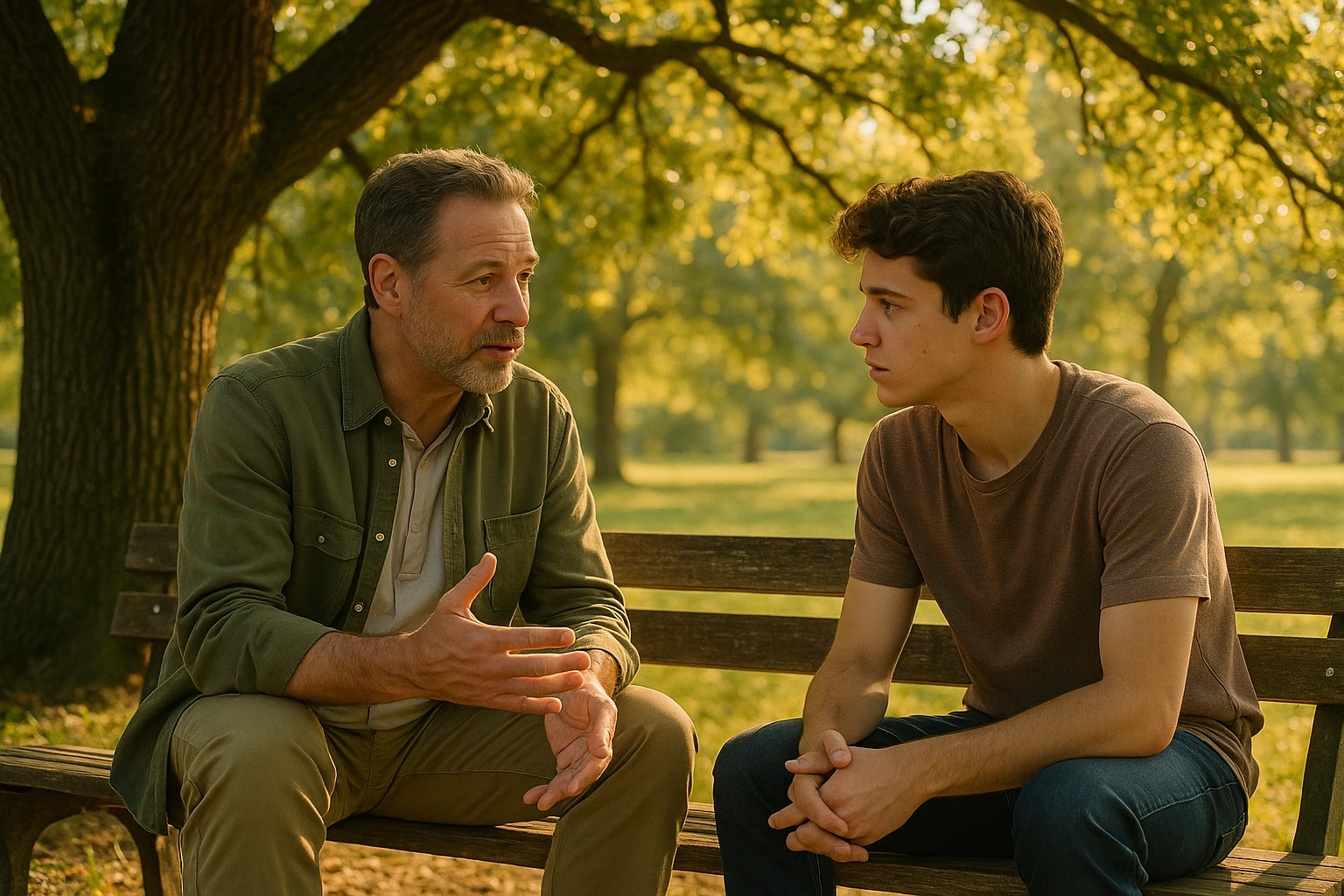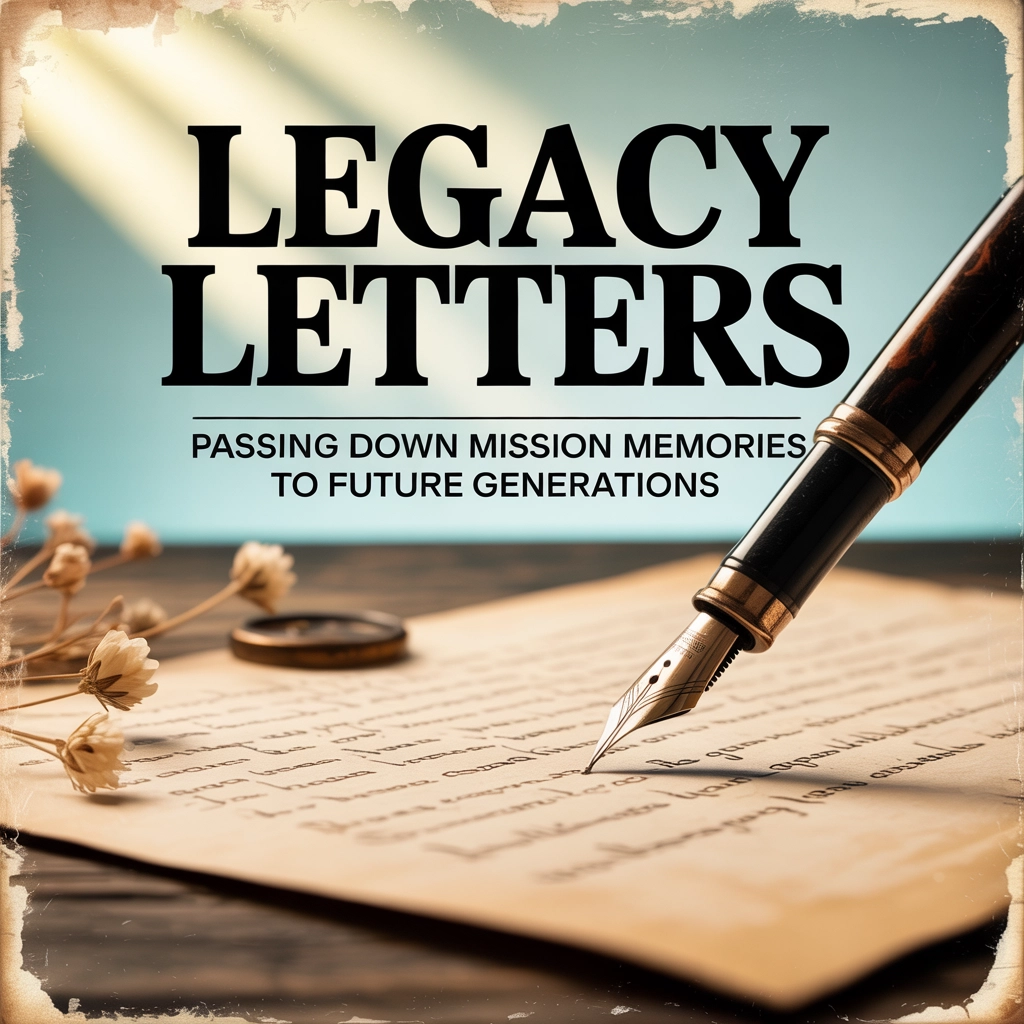You know that feeling when you're sitting around the dinner table, and someone starts telling that story again? The one about the time they almost missed their flight to the mission field, or when God showed up in the most unexpected way during a youth retreat? Everyone groans playfully, but secretly, we all lean in because we love hearing it again. These aren't just stories, they're legacy moments that shape who we are and who we're becoming.
But here's the thing that keeps me up at night sometimes: what happens to those stories when we're gone? Not the dramatic, life-altering moments that make it into church testimonies, but the quiet Tuesday morning revelations, the prayers whispered in hospital hallways, the way God met you in that small group when everything felt impossible?
That's where legacy letters come in, and friend, they might just be one of the most powerful tools we have for passing down our mission memories to the next generation.
More Than Just "Dear Future Family"
Let me be real with you, when I first heard about legacy letters, I pictured some formal, stuffy document that felt more like a last will and testament than a heartfelt conversation. But legacy letters are actually the opposite of that. Think of them as love letters to the future, wrapped up in the wisdom you've gathered along the way.
Scripture reminds us in Deuteronomy 6:6-7: "And these words, which I command thee this day, shall be in thine heart: And thou shalt teach them diligently unto thy children, and shalt talk of them when thou sittest in thine house, and when thou walkest by the way, and when thou liest down, and when thou risest up." God's been telling us to pass down our faith stories all along, legacy letters just give us a beautiful way to do it.

For those of us in ministry, missions, or leadership roles, these letters become even more precious because they capture not just our personal faith journey, but the collective memories of how God worked through us to impact others. Every youth pastor has stories about the kid who seemed unreachable but had a breakthrough at summer camp. Every mission leader remembers the day when everything went wrong, but God turned it into exactly what was needed.
The Mission Memories That Matter Most
Here's what I've learned about mission memories, they're rarely the big, Instagram-worthy moments. Sure, those matter too, but the ones that really shape us are often the seemingly ordinary ones:
- The morning devotion that changed your entire approach to leadership
- The conversation in the church parking lot that led someone to Christ
- The way your team pulled together during that disastrous missions trip
- The prayer circle that formed spontaneously during a crisis
- The moment you realized God was calling you to something bigger
- The failure that taught you more about grace than any success ever could
These are the stories that need preserving, not because they're dramatic, but because they're deeply human and achingly real. They show the next generation that ministry isn't about perfection, it's about showing up, messing up, and letting God work through our beautiful, broken efforts.
Starting Your Legacy Letter Journey
Okay, so you're convinced that legacy letters are a good idea, but where do you even start? Trust me, I get it. The blank page can feel overwhelming, especially when you're trying to capture a lifetime of faith experiences.
Here's my suggestion: don't try to write your entire spiritual autobiography in one sitting. Instead, start with one memory, one lesson, one moment when you felt God's presence in your ministry or mission work.

Maybe it's the story of how you ended up in youth ministry when you swore you'd never work with teenagers. Or the missions trip where you learned more from the people you were supposed to be helping than you ever taught them. Start small, start honest, and start with what's burning in your heart right now.
I like to think of each legacy letter as a spiritual snapshot, not just what happened, but how it changed you, what you learned about God's character, and what you hope the reader takes away from your experience.
The Ripple Effect of Shared Stories
There's something magical that happens when we share our mission memories authentically. It's like spiritual dominoes, one person's honest story about God's faithfulness gives someone else permission to share theirs, which encourages another person to step out in faith, which creates new stories worth sharing.
I think about the youth leaders reading this who have watched kids grow up, get married, and start families of their own. Imagine those young adults receiving a letter from you years from now, reading about the prayers you prayed over them, the concerns you brought to God on their behalf, the moments when you saw God's hand clearly working in their lives. That's not just sentiment, that's building a legacy of faith that spans generations.
Or consider the mission leaders who have served in difficult places, who have seen God's provision in impossible circumstances. Your letters could be the encouragement someone needs to step into their own calling, to trust God with their fears, to believe that He can use ordinary people for extraordinary purposes.

Making It Personal and Practical
Let's get practical for a minute, because good intentions without action don't help anyone. Here are some ways to make your legacy letters feel authentic and meaningful:
Be specific about the small stuff. Don't just write "God provided for our needs." Tell them about the envelope of cash that showed up exactly when you needed it, or the volunteer who appeared just when you were ready to quit, or the way that difficult teenager finally smiled after three months of trying to connect.
Include your doubts and questions. The next generation needs to know that even strong leaders struggle with faith sometimes. Share the seasons when you wondered if you were making any difference, the prayers that felt like they hit the ceiling, the times when God seemed silent but you kept serving anyway.
Write like you're talking to them in person. Use your natural voice, include inside jokes, mention specific people and places. This isn't a theological treatise, it's a conversation with someone you love about the things that matter most.
Don't wait for the "right time." There's never going to be a perfect moment to capture everything. Start where you are, with what you have, and trust that God will use even your imperfect words to speak to future hearts.
The Gift That Keeps Giving
Here's what I love most about legacy letters filled with mission memories: they become treasures that keep revealing new insights over time. A story that seems simple to a teenager might speak profound truth to that same person when they're facing their own ministry challenges at thirty-five.

When we document our faith journeys, the mountaintops and valleys, the clear directions and confusing detours, we're giving future generations a roadmap of God's faithfulness. We're showing them that ordinary people who say yes to God can have extraordinary impact, even when (especially when) they don't feel qualified for the task.
Your Story Matters
Friend, as you consider your own legacy letter journey, remember this: your story matters. The kids you've mentored, the teams you've led, the communities you've served, the prayers you've prayed in the middle of the night: all of it matters in God's kingdom economy.
Your mission memories aren't just personal history; they're testimonies of God's goodness, evidence of His faithfulness, and encouragement for the next generation of leaders who will face their own challenges and opportunities.
The beautiful thing about legacy letters is that you don't have to wait until the end of your story to start writing them. You can capture the lessons you're learning right now, the ways God is working in your current ministry, the hopes you have for the future leaders you're investing in today.
At Call to Story, we believe every life has a story worth preserving, and every leader has wisdom worth passing down. Your mission memories: the funny ones, the hard ones, the ordinary ones, and the miraculous ones: are gifts waiting to be unwrapped by future generations.
So grab a pen, open your laptop, or just start talking into your phone. Begin with one memory, one lesson, one moment when you knew beyond doubt that God was writing a bigger story through your ordinary life. Trust me, the people who love you and the leaders who will follow in your footsteps are going to thank you for it.
Because in the end, our greatest legacy isn't what we accomplished: it's how we helped others discover what God could accomplish through them. And that story? That story is absolutely worth preserving.

